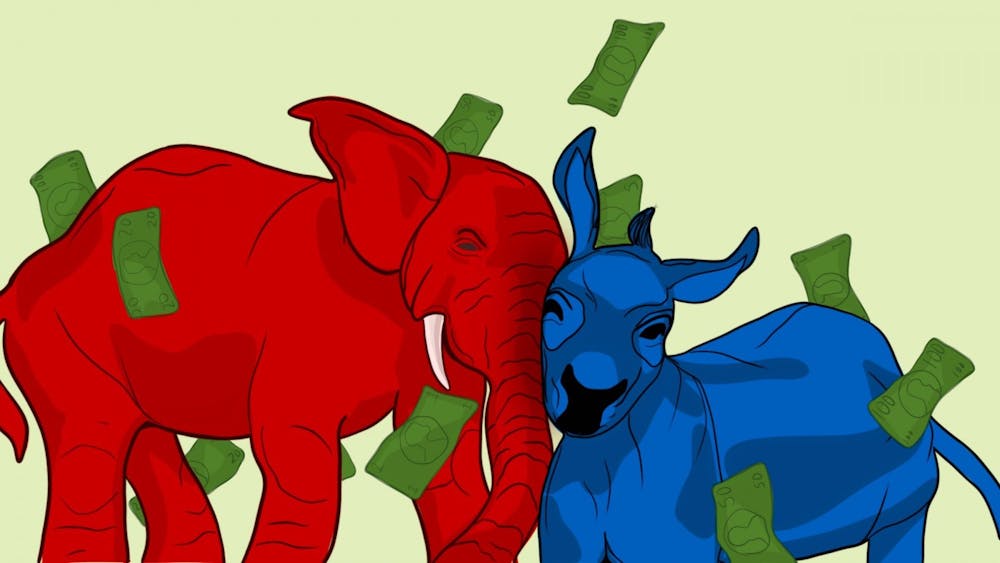Within 10 days, the first presidential debate between incumbent President Donald Trump and Democratic nominee Joe Biden is set to take place. With high levels of polarity and division, this election is pivotal for the future of America as a nation.
Every presidential election cycle, though, the electoral college only allows two dominant parties to stay in power and decide the most pressing issues of the time. With all the freedoms guaranteed in the U.S. Constitution, we still don’t have the freedom to choose beyond two opposing viewpoints, hundreds of years later.
The electoral college must be abolished and proportional representation or ranked-choice voting should take its place. Within systems of proportional representation, legislators are elected in multi-member districts where the number of seats a party wins is proportionate to the percentage of votes they garner. Moreover, ranked-choice voting allows voters to rank candidates on ballots based on their personal preference. These are rational proposals that can bring about meaningful change.
Political polarization has been worsening rapidly, as people mindlessly align their individual ideals with one of two party lines. Simply put, there are more than two sides to every policy issue, and even though the two parties in power attempt to consider all possible solutions, they each find one specific way to go about solving the issue. We have endless levels of mind-numbing bureaucracy littered through every institution in this country, yet we don’t have the simple freedom to choose beyond two different schools of thought.
In the coming days, we’ll catch a glimpse into the current political landscape as the presidential debates kick off. Most Americans would never have expected our two options to be Trump and Biden. We’re presented with picking one of two incompetent, bumbling, men over the age of 70. The debates are more likely to mirror a sketch comedy routine at a nursing home than a professional and polished debate.
Political systems in which two dominant parties create an illusion of choice is a pseudo-two party tyranny. This inevitably leads to polarization and can increase the likelihood of authoritarian policies, damaging American society as a whole.
According to systems theory, society is made up of complex interrelated parts that are arranged into a cohesive functioning unit. According to the systems approach, entropy and synergy are both vital characteristics of a functioning system.
Entropy is present in all systems and can be represented as disorder, chaos and even change. This basically refers to the proclivity systems have to eventually change, run down and fail over time. On the other hand, synergy represents connection and order within a system. Societal cohesiveness creates a whole that is greater than the sum of its parts.
Although this may seem fairly abstract, we can apply these ideas to political systems. For instance, low political trust and support leads to increased entropy.
We must find order within the complex web that makes up American politics. The current chaos will only lead to the country’s failure. Thus, we need to focus on creating much-needed changes within our system to prevent it.
The Constitution makes it practically impossible for an independent or third-party candidate to win a presidential election or any significant sway in American politics. As party lines are drawn clearer, we urgently need freedom of choice beyond two dominant parties. Two ways of looking at and evaluating every policy issue are simply not enough.
As American politics slips further into degradation, Democrats and Republicans sit idly by. Corruption, political divide and financial greed — which both parties are guilty of — only weigh our country down. More freedom of choice through a multi-party system, in addition to a revamped voting process, will create more compassion throughout the depraved political landscape now running rampant throughout this country.
Kishan Dhulashia (he/him) is a sophomore studying business economics and public policy. He’s currently involved on campus with Indian Student Association as the photography and videography chair.






